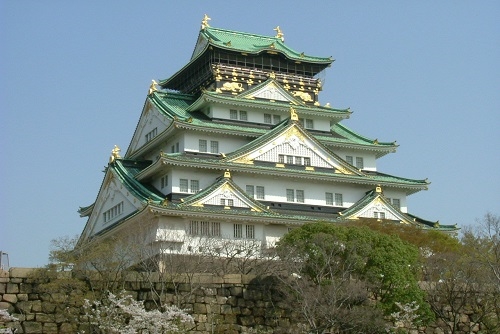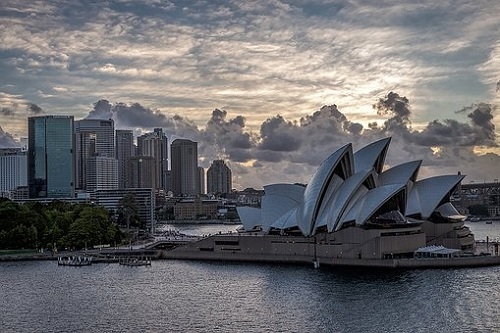Exchange giants clear the way for Singapore hub
Singapore is soon to play host to three major clearing houses by way of Eurex, Intercontinental Exchange and domestic incumbent, the Singapore Exchange. The presence of all three could transform the major offshore financial centre into one of the world’s largest clearing hubs, says Jonathan Watkins.
Hubs are defined as the effective centres for an activity or network. Some of the more well-known examples include Hollywood for movies, Savile Row for tailors or Bordeaux for fine claret.
 The conundrum for firms considering establishing themselves within the focal points of these respective industries is whether the benefits of the overall magnitude of the area outweighs the opportunity to grab entire market share for yourself in a separate location.
The conundrum for firms considering establishing themselves within the focal points of these respective industries is whether the benefits of the overall magnitude of the area outweighs the opportunity to grab entire market share for yourself in a separate location.
It is a share of the pie vs growth of the pie argument.
“The intended benefit of a Singapore clearing cluster is to grow the overall marketplace in Asia for central clearing in hard currency, and to promote sustained infrastructure investment in Asia by clearing participants and clearing intermediaries from the rest of the world,” said Michael Syn, head of derivatives, SGX.
“This anchors the developmental logic of promoting Singapore as a multi-market multi-central counterparty jurisdiction, so as to grow the clearing pie for international access to Asia, complementing other jurisdictions which are anchored on the share of pie in domestic/regional Asian clearing.”
Deutsche Boerse announced its intentions to launch a clearing house in Singapore at the start of this year, while ICE’s way consisted of acquiring an existing infrastructure through the Singapore Mercantile Exchange (SMX).
Geographical strengths
Though the three clearing houses will be squeezing into a 710 square kilometre space, the country is rife with a plethora of opportunities, subsequently drawing major financial firms to set up in Singapore.
Forthcoming regulations will introduce mandatory clearing of OTC derivatives in the region next year, which all three central counterparties (CCPs) will hope to capitalise on.
Increasingly large commodities markets and the growing internationalisation of the renminbi also strengthens Singapore’s draw.
| “The intended benefit of a Singapore clearing cluster is to grow the overall marketplace in Asia for central clearing," Michael Syn, SGX. |
“The qualities of an international hub suitable for mediating East-West clearing must include a trusted and independent jurisdiction, global regulatory recognition, a strong credit rating, and an established pool of international financiers and traders,” he added.
Asia is seen as the prominent region for growth by global exchanges, and within the continent, Singapore is well-placed to reach all corners of the continent.
Capturing trading flows from Southeast Asia and providing investors with exposure to China, Singapore is already somewhat of a hub in terms of financial markets.
Natural route for the West
But for clearing in Asia, Singapore is now aiming to become what Amsterdam is to equity options, Houston is to energy trading and what London is to foreign exchange.
“Singapore is the regional hub for much of the region's physical commodity trade,” said Jennifer Ilkiw, vice president, ICE, Asia Pacific.
“ICE has had a presence in Singapore for more than a decade and in recent years we have seen increased participation from Asian market participants across our global energy markets, for example Brent, Gasoil, Fuel Oil, Coal futures, as well as more participation across our soft commodities and Liffe interest rate contracts”
"The focus of the global financial markets is increasingly moving into the fast-growing Asian economies," Eurex. |
But with China’s markets closed to foreign participants, Singapore’s links to Southeast Asia appear to have swung the decision for major European exchange Eurex, which has had a presence in the country for five years.
“Asia has become the growth engine of the world economy. Thus, the focus of the global financial markets is increasingly moving into the fast-growing Asian economies,” a Eurex spokesperson told FOW.
“Based on these developments, we decided to expand and chose Singapore as the main location for our Asian activities.
“Singapore is ideally suited to this role due to its strategically advantageous position as well as the geographic and cultural links it offers – to both South and East Asia. It also has a stable political and legal situation and a well-developed, internationally open capital market structure.”
ICE took an alternative route by purchasing SMX and its clearing house, SMXCC, providing the US group with the necessary infrastructure to get its operation up-and-running in a shorter timeframe.
“A period of business transition is currently in place in order for ICE to implement technology and platform changes at both SMX and SMXCC in consultation with the market and regulator,” added Ilkiw.
“ICE expects to transition SMX and SMXCC from existing technology to the ICE trading platform and ICE clearing technology and expects to relaunch the exchange and clearing house in the second half of 2014.”
Though timescales are not set in stone, at some point over the next few years, at least three major clearing houses will have set up in Singapore.
Found this useful?
Take a complimentary trial of the FOW Marketing Intelligence Platform – the comprehensive source of news and analysis across the buy- and sell- side.
Gain access to:
- A single source of in-depth news, insight and analysis across Asset Management, Securities Finance, Custody, Fund Services and Derivatives
- Our interactive database, optimized to enable you to summarise data and build graphs outlining market activity
- Exclusive whitepapers, supplements and industry analysis curated and published by Futures & Options World
- Breaking news, daily and weekly alerts on the markets most relevant to you



